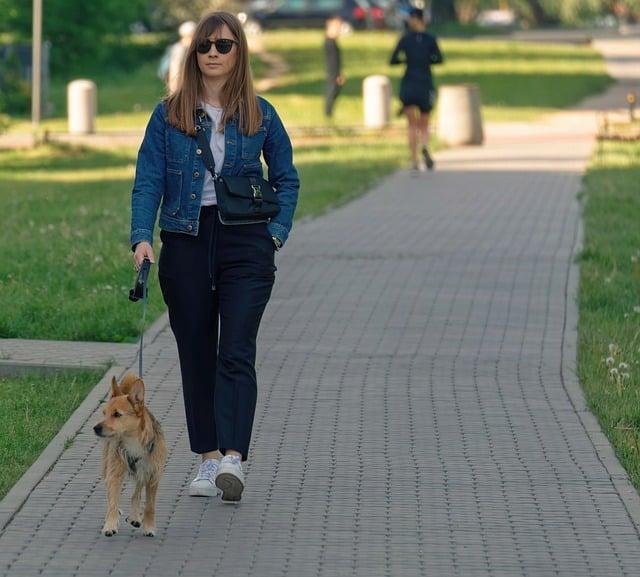In a quiet village, there lived a remarkable dog named Max, known for his unwavering loyalty to a single soul—an elderly man named Mr. Thompson. While other dogs frolicked with families, Max stood guard by Mr. Thompson’s side, his eyes reflecting a bond forged through years of companionship. One stormy night, when danger lurked, it was Max who sensed trouble, alerting Mr. Thompson just in time. This extraordinary loyalty reminds us that true devotion is rare and precious. If you seek a companion who will stand by you through thick and thin, consider the unique bond of a dog who loves only you.
Contents
- Understanding the Unique Loyalty of the Basenji Breed
- The Psychological Bond: Why Some Dogs Choose a Single Human
- Creating a Stronger Connection with Your One-Person Dog
- Practical Tips for Nurturing Loyalty and Trust in Your Canine Companion
- Q&A
Understanding the Unique Loyalty of the Basenji Breed
The Basenji breed is often celebrated for its distinctive personality traits, which set it apart from more conventional dog breeds. Known as the “barkless dog,” the Basenji communicates through unique vocalizations, adding to its enigmatic charm. However, what truly captivates dog lovers is the breed’s profound loyalty, which tends to be directed towards a single individual. This singular devotion can be both a blessing and a challenge for potential owners.
One of the most striking aspects of the Basenji’s loyalty is its deep emotional connection with its chosen person. This bond is not merely superficial; it is rooted in trust and mutual understanding. Basenjis are known to be highly intelligent and sensitive, often picking up on their owner’s moods and emotions. This intuitive nature allows them to form a relationship that is both profound and unique, making them incredibly rewarding companions for those who earn their trust.
However, this loyalty comes with specific needs and expectations. Basenjis thrive in environments where they feel secure and valued, and they require consistent interaction and engagement with their owner. They are not the type of dogs that will easily warm up to strangers or adapt to multiple caregivers. Instead, they prefer to establish a strong, exclusive bond, which can lead to challenges in social settings. Owners must be prepared to invest time and effort into nurturing this relationship, ensuring that their Basenji feels loved and appreciated.
Ultimately, the loyalty of a Basenji is a double-edged sword. While it offers an unparalleled companionship that is deeply fulfilling, it also demands a level of commitment that not every dog owner may be ready to provide. For those who understand and embrace the unique nature of this breed, the rewards are immense. A Basenji’s loyalty can transform a household, creating a dynamic filled with love, companionship, and an unbreakable bond that lasts a lifetime.
The Psychological Bond: Why Some Dogs Choose a Single Human
Dogs are known for their loyalty, but some exhibit an extraordinary bond with a single human. This unique connection can be attributed to various psychological factors that influence a dog’s attachment. **Socialization experiences** during their formative years play a crucial role. A dog that has been raised in a nurturing environment, where they receive consistent love and attention from one person, is more likely to develop a strong preference for that individual. This bond can be further reinforced through shared experiences, such as training, playtime, and daily routines.
Another significant factor is **the emotional state of the human**. Dogs are incredibly perceptive creatures, capable of sensing their owner’s feelings and moods. When a person provides a sense of security and emotional stability, the dog may gravitate towards them as a source of comfort. This mutual understanding creates a profound connection, where the dog feels safe and valued. The more a dog perceives their human as a protector and companion, the stronger their loyalty becomes.
Additionally, **the concept of imprinting** cannot be overlooked. Just as some animals form attachments to the first creature they encounter, dogs can also imprint on a specific human. This phenomenon often occurs when a puppy is exposed to a person during critical developmental stages. The bond formed during this time can lead to a lifelong attachment, making the dog more inclined to follow and protect that individual above all others.
Lastly, **individual personality traits** of both the dog and the human play a pivotal role in this dynamic. Some dogs naturally exhibit a more possessive or protective nature, which can lead them to favor one person over others. Conversely, humans who are calm, assertive, and consistent in their interactions with the dog can foster a deeper connection. This interplay of personalities creates a unique relationship where loyalty flourishes, resulting in a dog that is not just a pet, but a devoted companion to a single human.
Creating a Stronger Connection with Your One-Person Dog
Building a deeper bond with your one-person dog requires intentionality and understanding. These dogs thrive on the unique connection they share with their owner, and nurturing this relationship can lead to a fulfilling companionship. To strengthen this bond, consider implementing the following strategies:
- Quality Time: Dedicate time each day to engage in activities that your dog enjoys. Whether it’s a leisurely walk, playtime in the yard, or simply cuddling on the couch, these moments reinforce your role as their trusted companion.
- Consistent Training: Establishing a routine for training sessions not only teaches your dog essential commands but also enhances communication between you. Use positive reinforcement techniques to encourage good behavior, making the learning process enjoyable for both of you.
- Understanding Body Language: Pay close attention to your dog’s body language and vocalizations. Recognizing their signals will help you respond appropriately to their needs and emotions, fostering a deeper understanding and connection.
- Creating a Safe Space: Ensure that your dog has a comfortable and secure environment. This can be a cozy bed or a designated area where they feel safe. A stable environment allows your dog to relax and trust you more fully.
Incorporating these practices into your daily routine can significantly enhance the bond you share with your one-person dog. Remember that patience is key; building trust and loyalty takes time. Celebrate small victories and remain consistent in your efforts to connect.
Moreover, consider the importance of socialization. While your dog may be primarily loyal to you, exposing them to new experiences, people, and other animals can enrich their lives. Gradually introduce them to different environments while remaining by their side, ensuring they feel secure and supported throughout the process.
Lastly, always be mindful of your dog’s individual personality and preferences. Each dog is unique, and understanding their specific needs will allow you to tailor your approach. By being attentive and responsive, you can cultivate a relationship that not only meets their emotional needs but also strengthens your bond in ways that are truly rewarding.
Practical Tips for Nurturing Loyalty and Trust in Your Canine Companion
Nurturing loyalty and trust in your canine companion requires a blend of understanding, patience, and consistent effort. To foster a strong bond, it’s essential to establish a routine that your dog can rely on. Dogs thrive on predictability, so consider implementing a daily schedule for feeding, walks, and playtime. This not only helps your dog feel secure but also reinforces the idea that you are a dependable figure in their life.
Another effective way to build trust is through positive reinforcement. Reward your dog with treats, praise, or playtime whenever they exhibit desired behaviors. This approach not only encourages good habits but also strengthens the emotional connection between you and your pet. Remember, the more positive experiences your dog associates with you, the more loyal they will become. Consider these methods:
- Consistent Commands: Use the same words and gestures for commands to avoid confusion.
- Quality Time: Spend time engaging in activities your dog enjoys, whether it’s fetch, agility training, or simply cuddling on the couch.
- Socialization: Expose your dog to various environments, people, and other animals to build their confidence and trust in you as their protector.
Communication is key in any relationship, including the one with your dog. Pay attention to your dog’s body language and vocalizations to better understand their needs and feelings. By responding appropriately to their cues, you demonstrate that you are attuned to their emotions, which fosters a deeper sense of loyalty. For instance, if your dog seems anxious, offering comfort and reassurance can help them feel safe and secure in your presence.
Lastly, be patient and consistent in your approach. Building loyalty and trust takes time, especially if your dog has had past experiences that may have affected their ability to bond. Celebrate small victories and remain committed to your training and nurturing efforts. Over time, your dog will learn to see you as their trusted companion, leading to a lasting and loyal relationship that enriches both your lives.
Q&A
-
What breeds are known for being loyal to one person?
Several dog breeds are renowned for their loyalty to a single individual. These include:
- Akita
- Basenji
- Chow Chow
- Shiba Inu
These breeds often form a strong bond with their primary caregiver, making them excellent companions for those seeking a devoted pet.
-
Why do some dogs show loyalty to only one person?
Dogs that exhibit loyalty to one person often do so due to their natural instincts and early socialization. Factors include:
- Early bonding experiences
- Consistent training and care from one individual
- Protective instincts towards their primary owner
This unique bond can lead to a deep emotional connection, making them feel secure and loved.
-
Can a dog that is loyal to one person still be friendly with others?
Yes, a dog that is primarily loyal to one person can still be friendly and sociable with others. However, their attachment may manifest as:
- Preference for their primary owner during interactions
- Protective behavior when strangers approach
- Less enthusiasm towards unfamiliar people
This behavior is a reflection of their loyalty and protective nature, not a lack of social skills.
-
How can I strengthen my bond with a dog that is loyal to me?
To enhance your bond with a dog that is naturally loyal, consider the following:
- Spend quality time together through play and training
- Establish a consistent routine for feeding and exercise
- Provide positive reinforcement and affection
These actions will not only strengthen your relationship but also foster a deeper sense of trust and loyalty.
while many dogs offer loyalty to their families, some breeds forge an unbreakable bond with a single individual. Understanding these unique traits can enhance your relationship with your pet, ensuring a fulfilling companionship that lasts a lifetime. Choose wisely!




